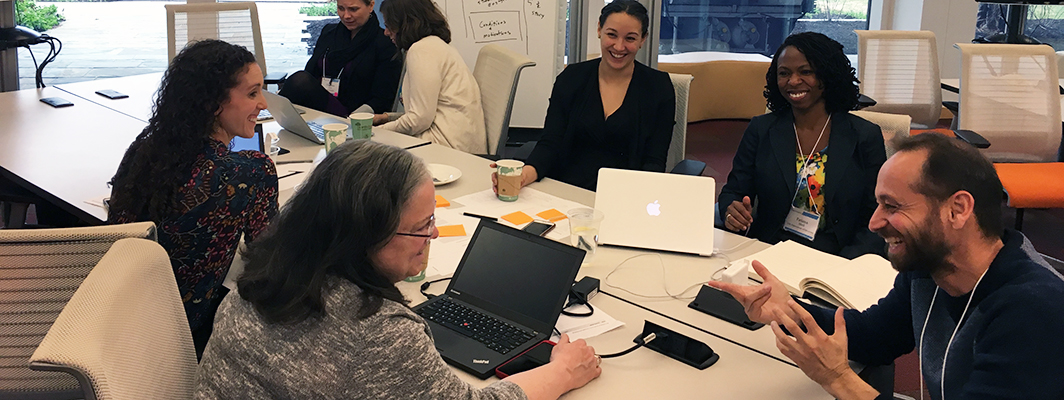Education Innovation Clusters (EdClusters) leverage the power of multi-sector networks to support innovative teaching and learning in regions across the country. This year we embarked on a
research initiative to learn more about how regional EdCluster ecosystems work, how they diffuse innovation, and how they best support the development and scale of breakthrough learning tools and practices.
During the first phase of this project – research planning and design – we worked with teams from seven EdClusters as well as network and learning science researchers to workshop research questions and develop research designs. The kinds of research questions these EdClusters have workshopped reflect the range of activities and partners they engage. Collectively, they form the basis for a shared research agenda for Education Innovation Clusters as a whole. We’re excited to continue this conversation with the broader network at the 2017 Education Innovation Clusters convening later this month.
So what have we learned so far? Clear takeaways have emerged:
EdClusters asked research questions that reflect their various stages of maturity. Questions can be grouped into three main categories:
- Descriptive Research – How does the network function and connect? For example, one of the EdClusters asked: What role does student agency play in connecting to and advancing community vitality?
- Intervention Research – How does a particular program or change get implemented and interact within the network? In that vein, one EdCluster asked: How can our network be adapted to increase access to innovative learning opportunities in rural areas?
- Impact Research – How does the network and its initiatives impact outcomes we care about? For example, one region asked: What is the impact on regional education of our online tools and offline activities?
Most EdClusters gravitated toward research designs or approaches that honor the complexity of networks. They include approaches such as:
- Design-based implementation research;
- Mixed methods case studies;
- Network analysis; and
- Research-practice partnerships.
Several topics emerged as common priorities for research that represent the work that EdClusters do. They include:
- Learning technology;
- New metrics/measures for impact;
- Equity and access;
- Economic development; and
- Network evaluation.
The questions these regions ask start a critical conversation around the role networks play in advancing cross-sector partnerships, equitable learning opportunities, and promising innovations at scale in a region. We’re looking forward to publishing a full report on the project later this fall, but below is a sample of research questions the cohort asked:
- What role do networks play in increasing access to innovative educational opportunities in rural areas? How can they be adapted to support learning across urban/rural contexts?
- How can a local education network progress from a “start-up” phase to driving strategy across a region? How does a network engage a range of partners to prioritize and scale new learning initiatives?
- How do online platforms impact the connections in a regional ecosystem? What impact do those connections have on partners, schools, and learners?
- What metrics can be developed to assess the impact of a personalized learning initiative scaled across a network with multiple partners? How do networks collect and analyze data to inform improvement?
- How do regional education networks impact regional economic development? What role does student agency play in connecting to and advancing community vitality? How does a local network allocate resources to maximize reach, social capital, and productivity?
- How can we develop a shared measurement tool for education organizations across a region to assess deeper learning competencies? What are ways to bring stakeholders together around education data that will lead to an increase regional innovation and economic development?
- Who are the major stakeholder groups in an urban education ecosystem? How do they interact, and what values/priorities drive the interactions? What role would an inclusive network play in the development of shared initiatives and collective action around innovative learning?
Education Innovation Clusters are bringing partners together to tackle big challenges and scale promising solutions in education. The questions EdClusters are asking about how they function and impact learning are thus critical to advancing our understanding of just how powerful these networks can be.
